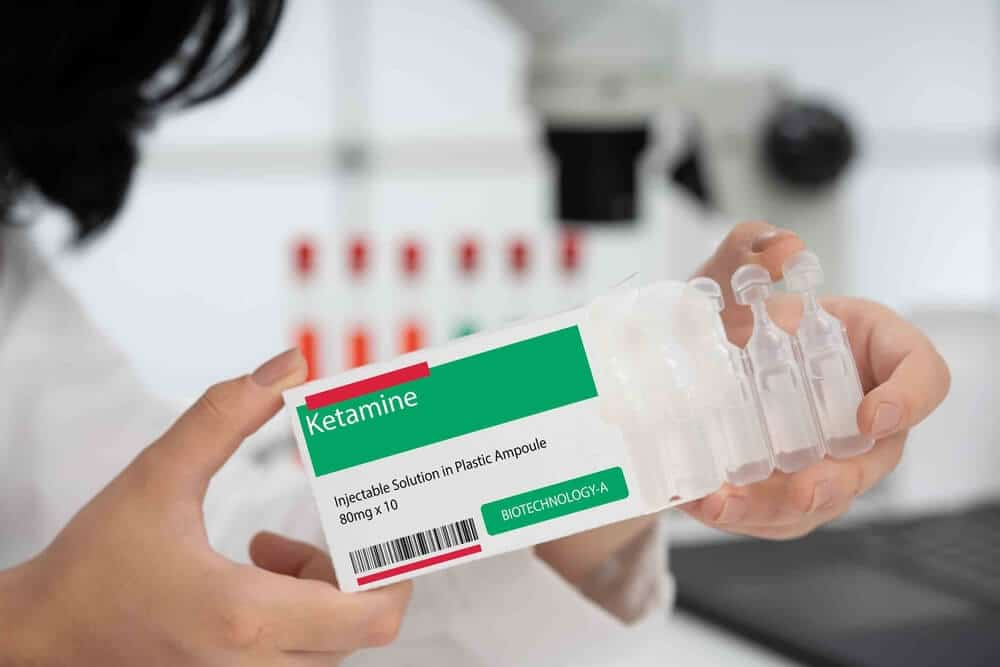We Accept Most PPO Insurance Policies
All calls and submitted forms are 100% confidential. Insurance could completely cover the cost of treatment




Ketamine therapy has emerged as a breakthrough treatment for individuals battling treatment-resistant depression, anxiety, PTSD, and other mental health conditions. Unlike traditional antidepressants that can take weeks or months to show effects, ketamine works through a different mechanism by blocking NMDA receptors in the brain, which can lead to rapid improvements in mood and mental clarity. Patients who have not responded to conventional medications or therapy approaches with significant relief can be treated with carefully administered ketamine sessions at a specialized ketamine therapy clinic in Tustin, CA.
The intensive outpatient treatment for mental health in California helps reset neural pathways. It can provide a window of mental clarity that allows patients to engage more effectively with other therapeutic interventions. Attending a ketamine therapy clinic near Tustin, CA, offers a structured, medically supervised environment where patients receive personalized treatment plans tailored to their specific mental health needs. These clinics typically provide comprehensive care that includes initial psychiatric evaluations, ongoing monitoring during treatment sessions, and integration support to help patients process their experiences.
The clinical setting ensures proper dosing, safety protocols, and professional guidance throughout treatment. Many patients report that ketamine therapy not only provides symptom relief but also offers new perspectives on their mental health challenges, often serving as a catalyst for broader healing and personal growth when combined with traditional psychotherapy and lifestyle changes.

Ketamine-assisted therapy for veterans and other patients involves a specialized treatment approach that combines the administration of ketamine medication with psychotherapeutic support to treat various mental health conditions. Unlike ketamine infusions given purely for medical purposes, ketamine-assisted therapy integrates the medication’s effects with guided therapeutic sessions to maximize healing potential.
The treatment typically involves a trained therapist working with patients before, during, and after ketamine administration to help process insights, emotions, and experiences that arise during the altered state of consciousness the medication can induce.
The therapy sessions usually follow a structured protocol where patients receive a controlled dose of ketamine in a comfortable, supervised setting while working with a mental health professional. During the ketamine experience, which can last 45 minutes to several hours depending on the method of administration, patients often report enhanced introspection, reduced psychological defenses, and new perspectives on traumatic experiences or deeply rooted patterns.
The therapist helps guide the session and assists with integration afterward, helping patients understand and apply insights gained during treatment to their daily lives. This combination approach has shown particular promise for treatment-resistant depression, PTSD, anxiety disorders, and certain chronic pain conditions, offering hope for individuals who haven’t responded well to traditional therapies alone.
It’s important to recognize that while not everyone develops PTSD, many active duty service members and veterans may experience other mental health challenges or adjustment issues that don’t necessarily meet the clinical criteria for PTSD. These might include depression, anxiety, or adjustment disorders that still deserve attention and care.
Ketamine differs fundamentally from traditional antidepressants in both its mechanism of action and speed of effectiveness. Traditional antidepressants like SSRIs (selective serotonin reuptake inhibitors) and SNRIs work by increasing levels of neurotransmitters such as serotonin, norepinephrine, or dopamine in the brain, typically requiring 4–8 weeks to show therapeutic effects.
Ketamine blocks NMDA glutamate receptors and promotes the growth of new neural connections through a process called neuroplasticity, often producing noticeable improvements in mood within hours to days of treatment. This rapid action makes ketamine particularly valuable for individuals experiencing severe depression or suicidal ideation who need immediate relief.
The therapeutic experience also differs significantly between these treatments. Traditional antidepressants are taken daily as maintenance medications and work gradually to stabilize mood over time. However, they can sometimes cause side effects like sexual dysfunction, weight gain, or emotional blunting.
Ketamine therapy, on the other hand, is administered intermittently in clinical settings and can produce profound psychological experiences during treatment sessions, including altered perception, introspection, and emotional processing. While traditional antidepressants aim to manage symptoms long-term, ketamine appears to create lasting changes in brain structure and function that can provide sustained improvement even after treatment courses end.

Ketamine therapy has shown effectiveness in treating several mental health conditions, with the strongest evidence supporting its use for treatment-resistant depression. The FDA has approved esketamine (a derivative of ketamine) specifically for adults with treatment-resistant depression who haven’t responded to at least two different antidepressant medications.
Research has also demonstrated significant benefits for major depressive disorder with suicidal ideation, where ketamine’s rapid onset can be life-saving for individuals in crisis. Beyond depression, clinical studies and real-world applications have shown promising results for post-traumatic stress disorder (PTSD), particularly when combined with psychotherapy, as the medication can help patients process traumatic memories with reduced emotional reactivity.
Additional mental health conditions that may benefit from ketamine therapy include various anxiety disorders, obsessive-compulsive disorder (OCD), and bipolar depression. Some clinics offering services for mental health treatment in California have used ketamine to treat chronic pain conditions that have psychological components, such as fibromyalgia and complex regional pain syndrome since mental health and chronic pain often interconnect.
While research is still emerging for conditions like eating disorders and substance use disorders, early studies suggest potential benefits in these areas as well. Although ketamine therapy is typically considered when first-line treatments have been ineffective, the decision to pursue this treatment should always involve thorough evaluation by qualified mental health professionals who can assess whether a patient is an appropriate candidate based on their specific condition, medical history, and treatment goals.


Ketamine therapy is generally considered safe when administered in clinical settings under proper medical supervision, though, like all medical treatments, it does carry some risks and side effects. Ketamine has been used for decades as an anesthetic, and in 2019, an inhaled version of it was approved by the FDA for treatment-resistant depression.
The safety profile is well-established due to its long history of medical use, and serious adverse events are rare when proper protocols are followed. Common side effects during treatment include temporary dissociation, nausea, dizziness, increased blood pressure and heart rate, and mild cognitive effects that typically resolve within hours of treatment. Most patients tolerate the therapy well, and these effects are generally manageable in a supervised clinical environment.
However, ketamine therapy isn’t appropriate for everyone, and thorough medical screening is essential before treatment begins. Despite the general safety, ketamine carries the following risks: Instability of heart and blood vessel function: This may include a temporary increase in blood pressure and heart rate or a decrease in blood pressure and heart rate.

Attending a ketamine therapy clinic in Tustin, CA, provides individuals with treatment-resistant mental health conditions access to a cutting-edge therapeutic approach that can deliver rapid and profound relief when traditional treatments have failed. The clinical environment ensures patients receive medically supervised care with proper dosing, safety monitoring, and emergency protocols, maximizing effectiveness and safety.
Beyond the medical benefits, ketamine therapy clinics provide a supportive, structured environment designed specifically for mental health healing. Many clinics integrate psychotherapeutic support before, during, and after ketamine sessions, helping patients process insights and emotional breakthroughs that often occur during treatment.
For many individuals who have struggled with chronic mental health conditions, attending a ketamine therapy clinic represents a path toward recovery that seemed impossible with conventional treatments alone. For help locating an effective ketamine therapy clinic in Tustin, CA, call Moment of Clarity at 949-625-0564 today.